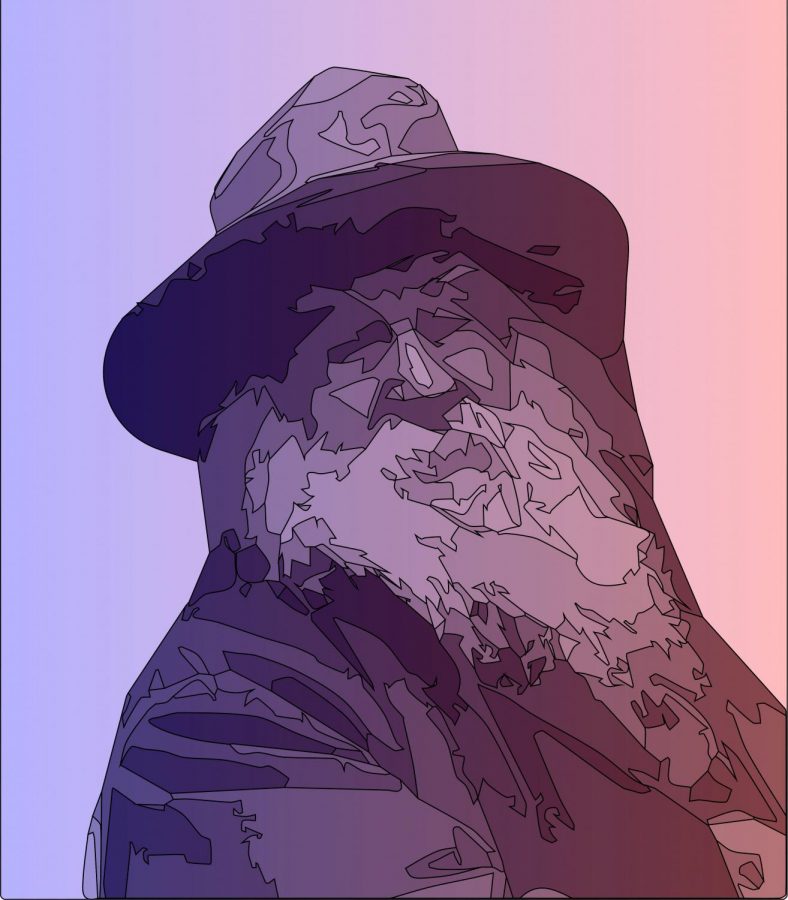Walt Whitman: the Overlooked Namesake of our School Turns 200
May 15, 2019
In Whitman students: in their own words, two hundred of Whitman’s two thousand students reflect on their idiosyncrasies. Together, they comprise Walt Whitman High School. Many of those same students know close to nothing about Walt Whitman, who was not only a pioneer of modern-day poetry, but a proponent of inclusion.
Thanks to an endowment from a Whitman parent, hundreds of ninth graders have received a slim volume of Whitman’s poetry during the first week of school. The poetry goes mostly unread. AP Literature is the first class where students study Whitman’s poetry: “Crossing Brooklyn Ferry.” But the class—limited to seniors—isn’t required, leaving hundreds of students without exposure to Whitman.
“My impression is that before my class, most students do not know much about Whitman,”AP Literature teacher Eric Ertman said. “I think it would be a shame if you spent four years in any building, named after an individual and did not know anything about that individual.”
Celebrating what would’ve been his 200th birthday this year, Walt Whitman was one of the first American poets to openly address sexuality, gender roles and equality in his poetry.
In a school where the entryway banner declares “Love not Hate,” we’re still not learning about one of the country’s most powerful, progressive poets of all time. And he happens to be our school’s namesake.
“You might also get a sense of the spirit of the building, by considering who Walt Whitman was, what he wrote about, and the manner in which he lived his life,” Ertman said. “I think it can be helpful to think of a man who has celebrated life and all that it has to offer, and maybe just help us appreciate just what we have in front of our noses.”
Whitman often faced backlash from readers and other artists, especially after readers discovered his poem, “Leaves of Grass,” spoke joyfully of same-sex love. This backlash became local 10 years ago, when members of the radical Westboro Baptist Church came to the school to protest the school being named for a homosexual poet.
Students and staff turned their backs silently to the protesters across the street. Art resource teacher Nancy Mornini designed T-shirts featuring an image of Walt Whitman on the front and his words from the poem, “cool and composed,” on the back. This peaceful demonstration in support of Whitman embodies exactly what he preached: being respectful towards all members of society and fighting for the rights of others.
“Be curious, not judgemental…. stand up for the stupid and crazy, devote your income and labor to others, hate tyrants, argue not concerning God, have patience and indulgence toward the people,” Whitman wrote in Leaves of Grass.
Whitman’s poems were integral in forming the foundations of American society today, as he celebrated the nation’s diversity and paved the way for future poets to use free verse and casual prose. He spoke of the importance of protecting nature for the generations to come, addressing his poems to future readers. The core message of respect for others and appreciating variety in thought is something we should all take to heart.
“I think he lived his life in a way that we should, in a courageous way that I think we could all use for motivation for our own lives,” Ertman said.
“I think that had he lived in a later time, he would have been perhaps a little happier, but he made the best out of his life. And he celebrated all aspects of himself and his life and the world around him.”
Especially in light of recent events of hate speech in our community—including an incident where a student posted racial slurs on social media and more recently, students doing blackface—it’s critical to remember that we need to make all members of our community feel valued. Our namesake was ahead of his time in promoting inclusion and recognizing that differences are strengths, and his presence still lives on today.
In fact, despite resembling a typical high school, much of our building’s design nods to Whitman. Along many of the exterior walls are tiles with faint outlines of grass, an allusion to Whitman’s famous poetry collection “Leaves of Grass”. Most students don’t notice that the school’s literary magazine, Eidolon, is also the name of a Whitman poem recounting the advice of a seer to a poet to incorporate true realities of the world in his work. Finally, a framed portrait of Whitman hangs in the main first-floor hallway.
Learning about Whitman won’t instantly remedy many of the issues students and teachers face. But, though his work may be dated, learning about the values Whitman espoused can build a like-minded community and provide students with a positive figure to rally around. Whitman’s approaching 200th birthday serves not only as a reminder of how far we have come in building an open-minded community, but also how critical recognition of our failures and continued improvement is. As the years pass, the leaves of grass etched into our school’s tiles grow fainter, but Whitman’s spirit lives on in the building. It’s up to us to foster a community he would be proud of.










